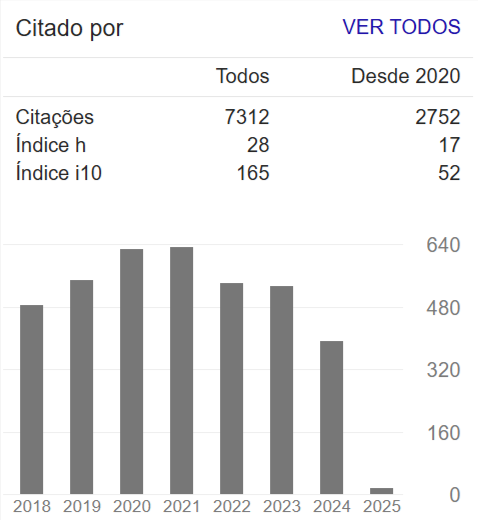Development of an experimental prototype of a reverse osmosis desalinator for the treatment of brackish water in rural areas
Abstract
Reverse osmosis is recognized as an efficient technical process aimed at desalinating brackish water using membranes whose main function is to retain salts. Its efficiency depends on variables such as temperature, pressure, pH, salt concentration and yield. The main goal of this article is to conceive, design and build an experimental prototype of a reverse osmosis desalinator for the treatment of brackish water for the human consumption and irrigation in rural areas. To check whether the prototype could produce water able to meet the requirements of small farms in the region, as well as of the local population, the study carried out experiments using solution samples equivalent to the brackish water found in artesian wells in the municipality of São Francisco do Itabapoana, Rio de Janeiro. The prototype managed to produce a salt-free solution (0.0‰ salinity) using samples containing three different salt concentration levels (1.0‰, 2.0‰ and 3.0‰), all of which are generally found in the region's artesian wells with brackish water, Furthermore, the prototype can produce 432 liters per day, which is equivalent to 18 liters per hour or 3 liters per minute. These results demonstrate that the experimental prototype of the reverse osmosis desalinator is technically viable for the treatment of brackish water in rural areas.

















